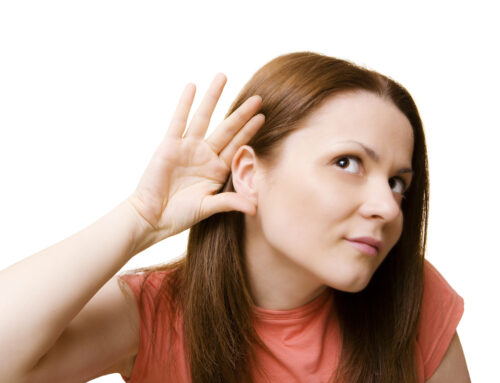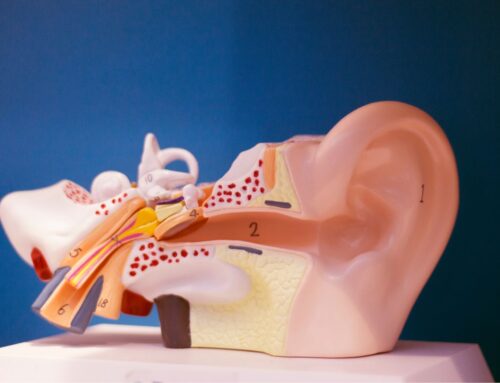By Dr. Howard Mango, Ph.D., Au.D
 It’s a complicated relationship between your body and the forces of earth. You might say there’s a lot of (gravitational) attraction involved! Balance and equilibrium help you stay upright when you stand and provide your body the right input. That way your brain knows where you are in relation to gravity.
It’s a complicated relationship between your body and the forces of earth. You might say there’s a lot of (gravitational) attraction involved! Balance and equilibrium help you stay upright when you stand and provide your body the right input. That way your brain knows where you are in relation to gravity.
So why is balance so important?
Your balance system is essential for so many things; we seldom think about it because it’s easy to take it for granted when it works just fine. A well-tuned balance system allows us to walk steadily through the grocery store, stand or sit upright with ease, and exercise. So the balance system helps us to step, run or move without falling.
Balance is also important to maintain and enjoy our lives. And when something is ‘off’, it really affects our everyday movement and mobility. No one wants to feel dizzy when closing their eyes, or feel the need to hold a chair or rail for support.
I propose….let’s go steady.
Like any relationship, it’s important to have communication. And balance is no different. Balance is controlled through signals to the brain from your sensory systems: the eyes, the inner ear, even skin and muscles. They join nerve impulses to let you know where you are in a space, or if you are moving.
And any relationship that puts balance at the center of your immediate attention needs to be encouraging, and share the same goals. No one asks for a balance issue, but when it happens, it’s important to get to the root of the challenge and resolve it. Our doctors of audiology specialize in evaluating, diagnosing and treating a variety of dizziness, vertigo and balance disorders. Their knowledge and understanding of the inner ear’s role to your balance story means they are highly trained to pinpoint any problems with precision… and resolve using our customized therapy approach known as Advanced Vestibular Treatment (AVT).
So, let’s go steady.
There are several steps you can take to manage and maintain your balance health.
- Keep an eye on your vision.
Your eyes provide clues to balance problems; healthy eyes may prevent unnecessary falls. At any age, it’s important to visit an optometrist to keep up with your vision health. I’m happy to partner with them in your care, too.
- Build and maintain strength.
The ability to maintain proper balance relies on the cooperation of a number of systems within your body. Yes, the inner ear and vestibular system are designed to work well with the musculoskeletal system. Find ways to build support for your body’s core central area, which helps to keep your body upright and stable.
- Know the signals, and seek out a specialist: the vestibular audiologist.
Balance troubles can onset suddenly or appear gradually. Many times, people don’t know they’re experiencing balance issues until a major incident occurs. Do you or a loved one need a chair for support? Feeling balanced when closing your eyes? Are you dizzy when you open your eyes? Specialists, such as our doctors of audiology, welcome the opportunity to help you. Our vestibular audiologists use state-of-the art technology to ensure an accurate diagnosis and subsequent treatment plan can be managed comprehensively and with compassion.
– Dr. Mango






Leave A Comment